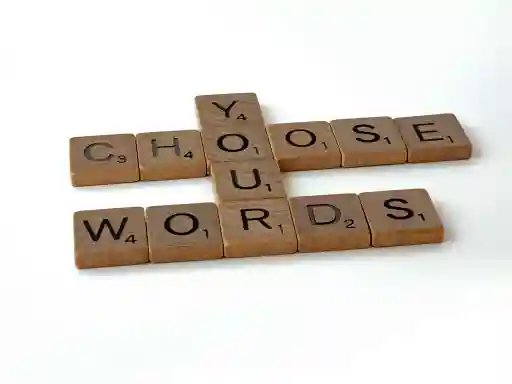The other day a friend was doing a crossword puzzle and asked me, “What song begins ‘It’s nine o’clock on a Saturday…’.” Without missing a beat I added, “…the regular crowd shuffles in. There’s an old man sitting next to me, making love to his tonic and gin.”
Beyond demonstrating that I knew the song – Billy Joel’s “Piano Man” – I spoke the lyrics to their end, compulsively, because they were so linked together in my mind. Each word evoked another, and it was impossible for me to stop until I’d recited every verse. Be warned, never ask me to recite Don McLean’s “American Pie” or Gordon Lightfoot’s “The Wreck of the Edmund Fitzgerald,” because I will. Word for word.
Obsessive-compulsive behavior or not, that’s how I think a well-written story should work: Each word should trigger the next, there should be a rhythm that supports memory retrieval, and regular repeating phrases to act as the linking devices. In other words: Hooks. Even rhymes, the very things copyeditors labor to eradicate, they can give a story a memorable song-like quality. For example, in writing the story “Cannibal,” I loved the lines “…tastes like tears. Because it’s gallons, like Tammy Faye Bakker’s cried a hundred years inside his mouth…” Editors loathe rhymes. Using them seems to violate some firewall dividing prose and poetry. However, my goal is to use more of them.
...fiction writers should abandon technically correct writing and experiment in the same way painters were forced to experiment in order to keep their medium relevant.
What I’m getting at, here… my point is… fiction is facing the same crisis that figurative painting faced when photography arrived. So many people know the skills for telling a clear, technically perfect story, essentially taking a photo. Our writing software corrects our grammar and spelling. By now we might even have programs that can construct bestselling books. My point is that fiction writers should abandon technically correct writing and experiment in the same way painters were forced to experiment in order to keep their medium relevant.
For me, every story is an experiment in how to combine bits of information. I might use choruses, like the rules in “Fight Club” or the Sorry mom. Sorry God. from “Invisible Monsters.” But when writing a short story, more and more, I look for unlikely phrases I can use in place of the standard conjunctions: and, but, or.
Most recently in the story “Fact of Life” I used the three two-word devices: even if, even then, even when. Almost the entire story is held together by these words, and it gives the main flashback scene – the fire in the car -- a run-on, panicky, frenetic energy. Likewise, in “Cannibal” I used the word “because” relentlessly, the way a child might repeat the question “Why?” to give the story a breathless forward momentum. This allows me to keep piling gruesome detail atop detail, forcing the reader or listener to pay full attention.
By inventing a conjunctive device to replace “and, but, or” you create something like a heartbeat, or the rhythm of a drum in a song. The frequency with which you use the device will speed up or slow down the reader’s experience. The most-basic example is the word Dad in my story “Dad All Over,” now published in Playboy. My goal was to use that one word – Dad – like the drum machine from a 1980’s song. The drum beat is so repetitive that it disappears, it even begins to act as a pause or void in the narrative. But as soon as you need to create energy and reach a crescendo, you only have to increase the repetition of the drumbeats.
In the story “Romance” the word And ties everything together in the simplest possible way, mimicking the way someone in denial will rush to fill any silence, always in fear of realizing the truth.
In the story “Loser” the conjunctive words are “except, but, only” because they allow me to state something and immediately undermine it. For example, “It’s like this little paper stamp printed with Hello Kitty you suck on and swallow, except it’s really blotter acid.” That allows each sentence to zigzag. It’s this, except it’s that. It’s this, only it’s that. It’s this, but it’s that.” Doing this allows every sentence to contradict itself, suggesting the constantly shifting, unresolved nature of reality under the influence of LSD.
When a writer identifies a unique device to use as a conjunctive phrase or a transition, she’s able to tailor the entire story to the plot and narrator. The words support the reality, instead of being a standardized language dictated by some word processing software. That said, bear in mind that the story itself must be strong and dynamic. A fancy-pants transitional device won’t hide the fact that nothing is happening plot-wise. Furthermore, a good, repetitive transition works best when it’s linking a dense flow of plot points. Like the rules in Fight Club, the device becomes invisible as it becomes familiar, eventually becoming only a pause or respite that heralds the next detail.
Keep in mind, these unlikely conjunctive devices are very conversational. Listen to people speaking, especially boorish, bullying loudmouths who are terrified that anyone might interrupt them. Such people have an arsenal of devices which allow them to filibuster. In conversation, yes, that kind of talk is infuriating. But in a short story, those place-holding tricks can keep the plot hurtling forward at break-neck speed.
That said, consider keeping such stories – those using such stylized language – short. Too much, presented too long will exhaust your reader.
I’ll shut up, now.
*Header photo by Alan Amato
To Read More Exclusive Writing Essays
by Chuck Palahniuk, Join Our Writers Workshop!

About the author
Chuck Palahniuk is author of the novels Fight Club, Survivor, Invisible Monsters, Choke, Lullaby, Diary, Haunted, Rant, Snuff, Pygmy, Tell-All, Damned, Doomed, and the upcoming Beautiful You. He also has two non-fiction books, the Portland travel memoir Fugitives & Refugees and the collection of true stories, essays, and interviews, Stranger Than Fiction.






